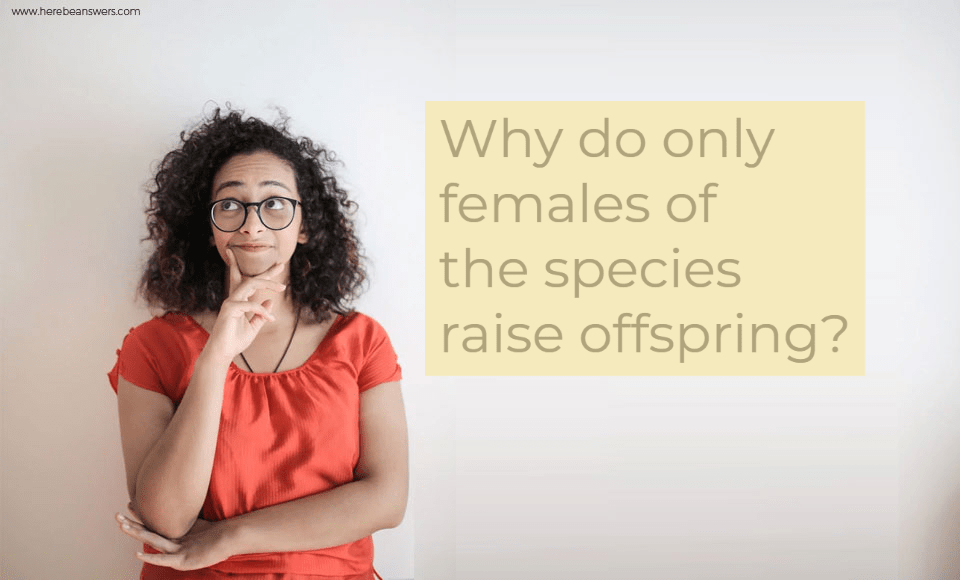No matter which part of the world you belong to, you might have noticed the trend that the mothers in your society generally spend much more time with their children and take more care of them than the fathers. Fathers may do the same thing but in a more indirect way by providing for and taking care of the whole family.
As far as history goes, we generally notice the same trend all over the world, back to our earliest ancestors. As civilization is becoming more educated regarding different aspects of life, we are learning different ways to take care of our young and breaking the long-lasting pattern of the traditional role of a parent in a family based on their gender. However, it still stands to question why most families are the way they are and that what the natural significance of this behavior in the past was.
First of all, the majority of species in the world (in the animal kingdom) are those of the insects, having nearly a million different species. At any one moment, it is estimated that there are a quintillion insects present in the whole world. However, insects are out of the question since, predominantly, they don’t raise their young at all. Those that do are generally hive-based species that often use male drones to provide most of the care for the eggs. Similarly, in avian species (birds), it is found that rather than a single parent, both the father and the mother play supporting roles in raising the young.
The case of our question mostly applies to mammals. In mammals, multiple factors shape the role of gender in parenting and determine the best way for the species to survive. One apparent reason is the difference in the physiology of females and males. Females generally have a body with lower bone densities, weaker muscles, and smaller average size than those of a male. This makes males the ideal candidate for tasks that require attributes like strength, speed, and stamina.
Females, on the other hand, are better equipped to survive. Their bodies are better at keeping their vital organs warm (by absorbing heat from extremities) and are usually better at fighting pathogens and viruses than those of males. Similarly, most females tend to live longer than males.
Another difference in the physiology of males and females is the presence of mammary glands in females. As offspring are in constant need of nursing during their early months, this creates another major boundary in the roles of a mother and a father.
The primary goal of most living organisms is to survive and reproduce as many offspring as possible. It is also preferable to mate with different females for genetic diversity, which, in turn, can increase the chances of survival. To maximize efficiency, it is essential that males focus their efforts on spreading their genes through different females, and females focus on caring for and nurturing their offspring. As a whole, this can ensure the survival of a species.
All these factors combined result in a pattern of responsibilities divided between males and females, where each gender gets a unique role. When this pattern goes on for a long time, these roles develop themselves into the biological makeup of a species and become more apparent than ever.
Due to thousands of years of living this way, both the genders have developed a distinct “character” that helps them perform their unique roles. For example, females generally have a greater sense of self-preservation than males; males are much more prone to taking high risks. Usually, females are more “picky” when choosing a mate and have stronger emotional bonds with their children than males.
Historically, all these gender-specific characteristics fit the circumstances that helped us survive. It’s also why females tend to invest more time in raising their offspring than males. In animals, this is still the case. In humans, even though this is still mostly what happens throughout the world, we have learned that it is no longer necessary for us to live like we used to. Now, we can rely on our intelligence more than brute strength. In fact, in the near future, the classical roles of a female and male may no longer exist at all.
